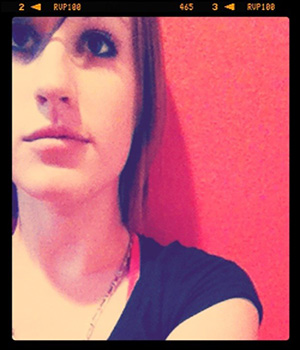Topic Tuesday: Recovery
“Diets Don’t Work in Recovery” (By: Lauren Kelley)
Going on a die t for a person in recovery from an eating disorder is as bad of an idea as an alcoholic deciding to have just one drink. Dieting, food avoidance and restrictive eating are huge gateway factors to relapse.
t for a person in recovery from an eating disorder is as bad of an idea as an alcoholic deciding to have just one drink. Dieting, food avoidance and restrictive eating are huge gateway factors to relapse.
 t for a person in recovery from an eating disorder is as bad of an idea as an alcoholic deciding to have just one drink. Dieting, food avoidance and restrictive eating are huge gateway factors to relapse.
t for a person in recovery from an eating disorder is as bad of an idea as an alcoholic deciding to have just one drink. Dieting, food avoidance and restrictive eating are huge gateway factors to relapse.In early recovery we learn about our obsessive thought process and we are taught to continuously acknowledge and gradually adjust that thought process. The ultimate goals in recovery are not to be thin but to have freedom from the obsession of food, practice body acceptance at a healthy weight and to no longer struggle daily with food and body image.
Like any other addictive behavior, there are varying degrees of insanity involved. After having lived through the turmoil of a full blown eating disorder, going through the emotional hurricane of facing the reality of needing help, and then struggling to make it over each hurdle productively rather than destructively while in recovery – the insanity is why anyone would want to go back to the behaviors at square one like dieting and restricting that started the painfully dysfunctional lifestyle in the first place. Denying the insanity is counter-productive, it is a real piece of the puzzle we have to accept and constantly be aware of. The mind is incredibly cunning and an eating disorder is an extremely powerful disease. In recovery we can be 100% positive we are battling an illness and then all of a sudden, within a matter of seconds our disease can slip in like a phantom and trick us into believing there is nothing wrong and we have control. Suddenly using a new, healthy solution seems much more difficult and unnecessary than falling back to what “worked” for so many years before. Given enough time the disease, which has patiently been sitting dormant waiting to resurface, will once again attempt to use food as proof to ourselves that we aren’t out of control or undisciplined. Recovery isn’t something that can be finished and forgotten about. Recovery, just like the disorder itself, is a way of life.
So what alternative do we pursue instead of dieting now that we’re in recovery? Instead of following a rigid food plan, we learn how to eat when we are hungry, stop eating when we’re full and work towards normalizing feelings about food. We learn to accept imperfection and put our focus towards a healthy relationship with our body image and how to make choices that empower us. It get easier with practice, but it is possible to love our bodies and to eat and exercise because we want to take care of them.
About the Author
A Texas native inspired by life experience, the unusually ordinary oddness of people and their ways, and dabbling in spontaneity. Lauren uses mixed mediums to create ominously playful artwork and a positive perception on the darker side of life in her writings as creative outlets in her recovery.


Comments are closed.